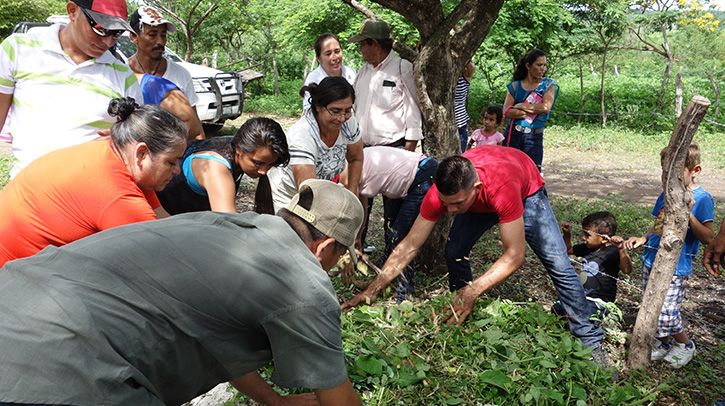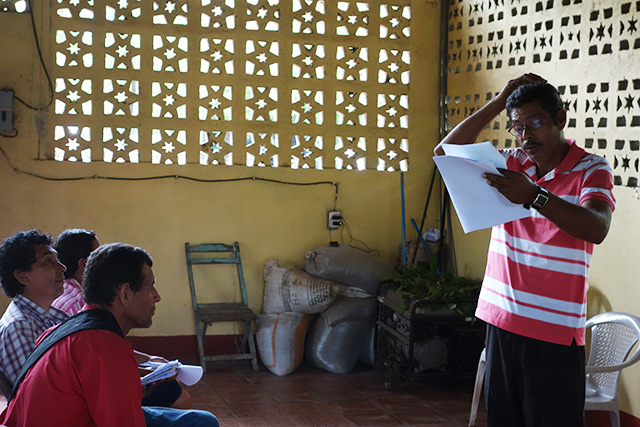The Art of Patience – From the Garden to the Subway Platform

Last week while impatiently waiting for the train to arrive in New York, I made myself think back to a conversation I had just recently had with two farmers in rural Nicaragua.
We had just wrapped up a farmer exchange workshop, hosted by our partner CEPAD, and I asked two of the farmers who had been acting as teachers during the sessions if they would stay behind and chat with me.
Episcopal Relief & Development has been working with CEPAD, the Council of Protestant Churches in Nicaragua, for several years in its sustainable agriculture programs, providing funding and technical expertise to help farmers try out new techniques on their farms and train volunteers to share knowledge in their communities.
I spoke with Juana Francisa Saldaña and Octavio Delgadillo, both of whom are agricultural ‘promoters’ in their communities. This means that they have volunteered to take the planting, soil and water management information they learn through the program, and share it with five ‘disciples’ among their group, accompanying them as they try out the methods on their own farms.
Both Juana and Octavio had been vibrant teachers during the workshop that week, and when I started asking them questions about what successes they had seen so far on their own land, I expected very upbeat accounts. And overall they were…but with a huge added element of patience!

Octavio told me how he had been using the CEPAD techniques – making compost, building erosion barriers, planting a diversity of crops. But he emphasized that it was a slow process. He could see that his soil was improving, and the plants were starting to absorb the nutrients, but he explained, “This is a process. The change has been little by little.” In the meantime, he is still working part time making concrete blocks for a local construction company, waiting for the day when his investment has paid off and he can concentrate on his farm full-time.
Juana then shared that her husband, who had been working with the CEPAD program, had died three years ago. When this happened, his son took the plot, and it was lost to her. So she had to find new land and start again from the beginning.
Undeterred, she has worked to slowly build up her new land, digging trenches, using compost and planting fruits and vegetables. She told me that she is hoping for the day, in two or three years, when – “I can see the fruits on the trees, my children can go and eat, and we can share in solidarity with our brothers and sisters.”
Farmers are so often teaching me lessons like this one – to nurture things so they can grow slowly, and think long-term. If Juana can wait three years for her dream, and Octavio can keep patiently building bricks, I can try to wait a little more patiently for my train.
—————————————-
Sara Delaney is a Program Officer with Episcopal Relief & Development.
Images: Top, Juana, Agriculture Promoter. Middle 1, Octavio, Agriculture Promoter. Middle 2, Octavio speaking for a workshop. Last, Community working together in Nicaragua.
An Historical Journey
We invite you to journey with us through our 75 years of healing a hurting world. View our interactive timeline that takes you from our start in the 1940s to the present, and witness our growth in vision and direction. We thank you for your support that allows us to strive towards a flourishing future. It takes #AllHands75!



